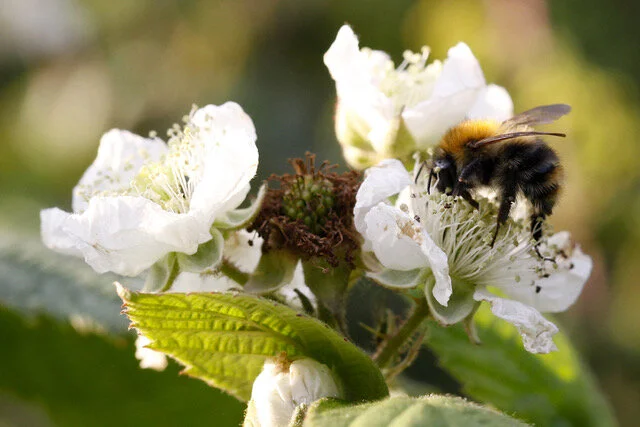OUR SOLAR HONEY
Eden Renewables’ solar farms don’t just produce clean renewable energy – they will be producing honey too!
All our projects make the most of the land beneath and around the solar panels by sowing a mix of local, native grasses and wildflowers to provide habitats for pollinating insects, including honey bees.
If the farm does not already have apiaries, we invite local beekeepers to establish them within the solar panel area or on adjacent land.
For some years, beekeepers have been producing honey at most of the solar farms our team has developed in the UK. In 2020 we bottled our first batch of Eden Renewables solar honey from Park Farm in Leicestershire, produced for us by Nigel Collier of Temple Bees.
Not only does Nigel harvest delicious honey, but he does it in as eco-friendly a way as possible, using hives made of English cedar, recycled (and recyclable) packaging, with minimal use of plastic. He also rescues stray bumble bees and raises his own queens.
Watch Nigel in action with Martin Clunes at Park Farm in this video made by Island Green Power.
A bee foraging for nectar at Park Farm
“The solar farm has done a lot to increase the biodiversity in that area, a few years ago there was nothing much there,” Nigel says. “Since the solar farm was built and the wildflowers planted, there has been an increase in solitary bees in the area, hoverflies and other pollinators like bumble bees. I have also seen an increase in my honey crop from the two apiaries by the farm even though the hedges were cut back and brambles removed.
“Last year I caught some European hornet queens in some monitoring traps I had set up for the Asian hornet which I hadn’t seen there before. Other wildlife has also increased, with buzzards moving into the area and also a kestrel.”
(The European hornet is the UK’s only native hornet and is a key indicator species as it is an apex predator and pest controller, while the Asian hornet is an invasive species.)
Nigel’s observations have been backed up by our own ecological studies.



